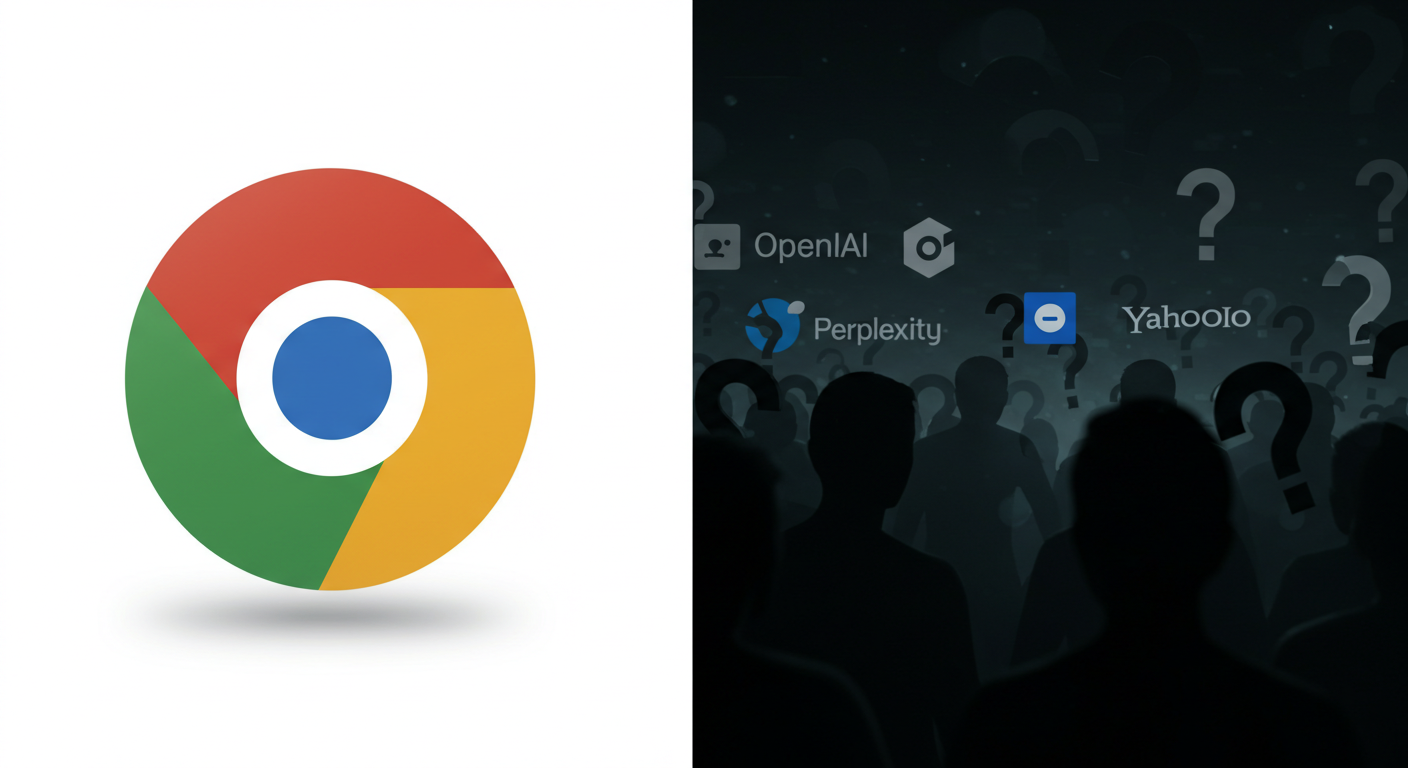Imagine a world where Google no longer owns Chrome, the most popular browser on the planet. That might sound far-fetched, but it’s suddenly looking real.
A court struggle is beginning in the United States, which threatens to dismantle Google’s empire. If the courts rule against Google, the tech giant could be forced to break up its empire.
One of the biggest pieces on the table? Chrome.
Beyond being a browser, Chrome controls over 60% of the global market. That’s billions of people clicking, searching, shopping, and scrolling every day. And behind all that activity is data—tons of it. Data that tells companies what people are interested in, what they’re buying, and how they think. Whoever owns Chrome doesn’t just get a browser; they get power.
And now, some big names are circling.
OpenAI, the company behind ChatGPT, is one of them. Right now, ChatGPT still leans on partners like Bing to answer questions about the real world. But what if it owned Chrome? That would mean direct access to user activity across the web. Every move a user makes online could help train OpenAI’s models to be smarter and more accurate. For OpenAI, Chrome wouldn’t just be a tool, it would be a game-changer.
Another player is Perplexity, a rising AI search engine. Unlike traditional search, Perplexity wants to understand not just what people ask, but how they think. And that requires a closer look at people’s online behaviour. Owning Chrome would give it that window, making it a major contender.
And then there’s Yahoo. Yes, Yahoo, the company that has twice shown interest in buying the mother company, Google itself. Now it seems they’re eyeing Chrome as a chance to get back in the game. But this time around, the stakes are higher, and the competition is much tougher. The real question is whether Yahoo, rooted in the old internet, is ready for a future driven by AI and real-time data.
Read also: Q1 numbers are in: banks, brands & big tech set the stage for a telling Q2
Experts say Chrome could be worth around $50 billion on its own. But its real value depends on who gets it and what they do with it. For the likes of OpenAI and Perplexity, Chrome could become a launchpad—fuelled by user data and AI models to dominate the next era of the internet.
All of this, though, hangs on the result of a major antitrust case. The U.S. government argues that Google abused its power by making Chrome the default option and giving itself an unfair advantage in the ad game. If the court agrees, Google could be forced to let Chrome go.
And if that happens, the race will be on. Because whoever buys Chrome won’t just get a product—they’ll gain influence over how billions of people experience the internet. And that’s a prize worth more than any price tag.







Comment
No comments found.